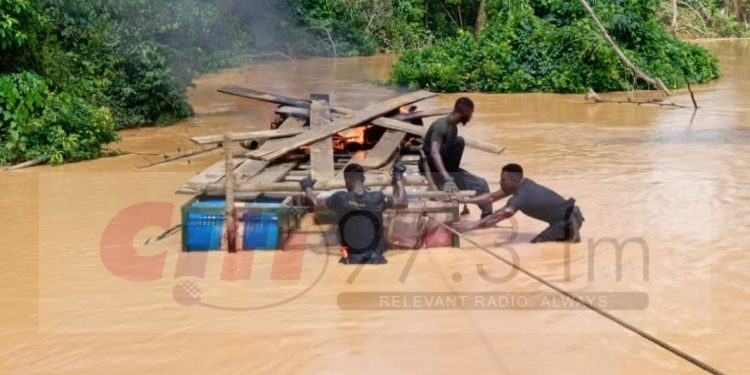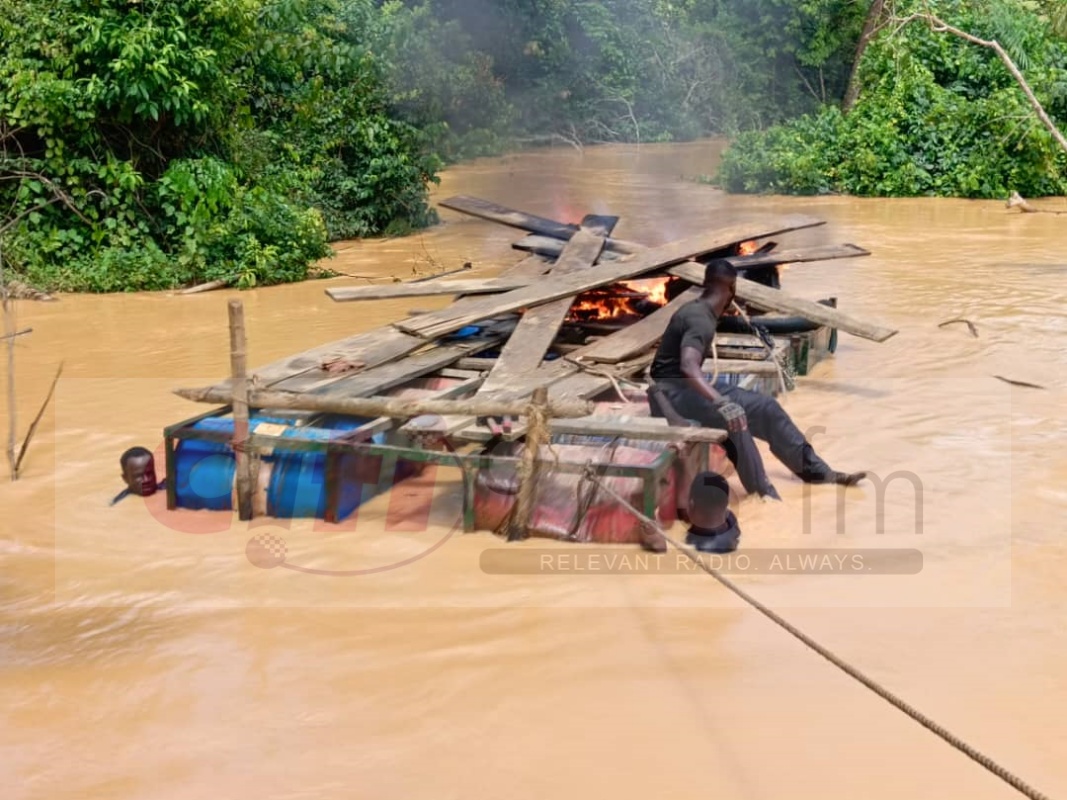Military destroys three Chanfans in anti-galamsey operation on Birim River

The Ghana National Association of Small-Scale Miners, in collaboration with the military, has intensified efforts to combat illegal mining, particularly on water bodies, as part of the government’s broader strategy to protect the environment.
As part of this operation, three chanfan machines commonly used for illegal gold extraction—along with other industrial equipment, were seized and burned on the banks of the Birim River.
The military’s involvement in this anti-galamsey operation follows the government’s recent announcement of the deployment of armed forces to clamp down on illegal mining activities, specifically in water bodies, under the enhanced “Operation Halt” initiative.

The Birim River, a critical water source, has suffered extensive pollution due to the illegal activities of miners, prompting swift action by the authorities.
The military-led task force made its first stop at Anyinam, in the Atiwa East District of the Eastern Region, a known hotspot for illegal mining.
Although the operation aims to crack down on galamsey operations in the area, reports suggest that several miners fled after receiving a tip-off, temporarily halting their activities before the arrival of the task force.
While it is unclear when the exercise will conclude, the destruction of illegal mining equipment marks a significant step toward restoring the Birim River and curbing further environmental degradation.

The collaboration between the Ghana National Association of Small-Scale Miners and the military is seen as a critical move in addressing the illegal mining menace, which has severely impacted Ghana’s water bodies and ecosystems.
Col. Eric Tenadu, Commander of the Operation Halt Task Force, has announced that the military will remain stationed around the Birim River and other targeted areas for the next two weeks as part of the first phase of the operation against illegal mining, known locally as galamsey.
Col. Tenadu expressed optimism that the operation would lead to a significant improvement in the condition of water bodies affected by illegal mining, stating, “We are launching this operation to make sure that we clear our water bodies. Whether registered or unregistered, we don’t care, our concern is the water body, so far as you are close to the water body, you are our target.”
He added, “We are confident that the water bodies will start to regain their natural state.” He emphasized that restoring these vital water sources, which have been severely polluted by galamsey activities, is a key objective of the task force.
The Operation Halt crackdown follows massive public pressure, spurred by consistent media coverage and advocacy from several civil society organizations (CSOs) demanding urgent government action. Media outlets and CSOs have been vocal about the environmental devastation caused by galamsey, calling for more stringent enforcement and protection of Ghana’s natural resources.
This mounting pressure compelled the government to deploy additional military forces to tackle the illegal mining crisis, beginning with hotspot areas like the Eastern Region.
The presence of military personnel for the two-week period aims to not only halt ongoing illegal mining activities but also prevent miners from resuming operations.





